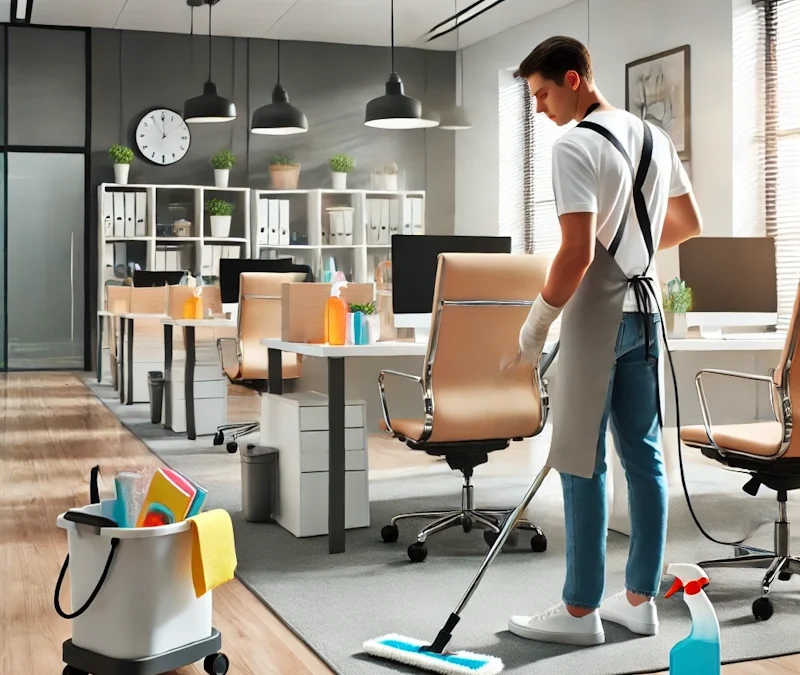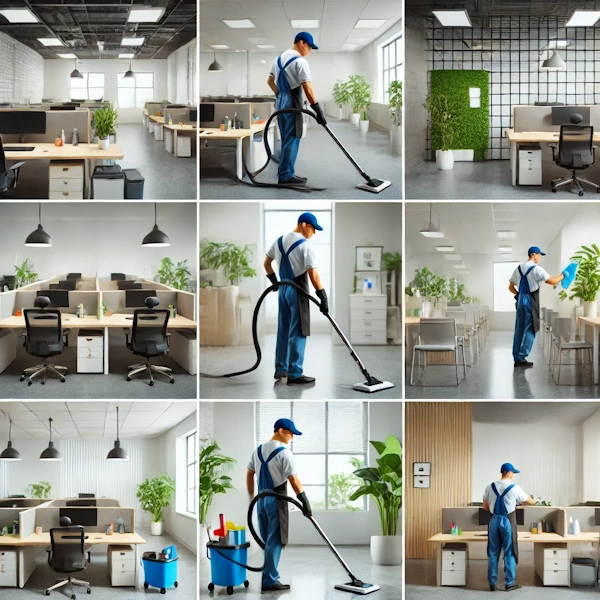In today’s fast-paced business world, maintaining a clean and organized office environment often takes a backseat to deadlines, meetings, and project demands. However, the state of an office can significantly impact productivity, health, and overall workplace satisfaction. This article explores the importance of keeping a clean office and the benefits it offers to employees and organizations alike.
Boosts Productivity
A cluttered workspace can lead to mental clutter. Research has shown that individuals working in clean and organized environments are better able to focus, make fewer errors, and complete tasks more efficiently. When desks are free from unnecessary items and common areas are tidy, employees can access the tools and resources they need without wasting time searching for them. A clean office fosters a sense of order, enabling staff to concentrate on their tasks rather than distractions caused by disarray.
Moreover, a well-maintained office environment encourages effective collaboration. When shared spaces like meeting rooms and communal desks are clean and organized, teams can work together more seamlessly, avoiding unnecessary interruptions caused by misplaced items or an untidy setting. This enhanced productivity not only benefits individual employees but also contributes to the overall efficiency and success of the organization.
Enhances Employee Health
An unclean office can be a breeding ground for bacteria, viruses, and allergens. Dust accumulation, dirty carpets, and poorly maintained restrooms contribute to respiratory issues and the spread of illnesses. Regular cleaning and disinfection of high-touch surfaces, such as keyboards, doorknobs, and communal kitchen areas, can significantly reduce the risk of sickness. Providing a hygienic work environment not only protects employees’ health but also minimizes absenteeism, ensuring a more consistent workflow.
In addition, indoor air quality plays a significant role in employee health. Offices with clean air filtration systems and minimal dust accumulation are less likely to cause respiratory problems, allergic reactions, or fatigue among staff. Organizations that invest in maintaining a clean and healthy environment demonstrate a commitment to employee well-being, which can also boost morale and job satisfaction.
Improves Employee Morale and Satisfaction
The office environment plays a critical role in shaping employees’ perceptions of their workplace. A clean and well-maintained office reflects professionalism and shows that the organization values its employees. When staff members feel that their well-being is prioritized, they are more likely to feel motivated and satisfied with their jobs. Additionally, a clean workspace can reduce stress and create a more pleasant atmosphere, contributing to higher morale.
A tidy and aesthetically pleasing office can also inspire creativity and innovation. Employees are more likely to feel energized and enthusiastic in a well-kept environment, which can translate into fresh ideas and increased engagement. Providing comfortable and clean spaces for breaks and relaxation further enhances employee satisfaction, fostering a more positive workplace culture.
Makes a Positive First Impression
For businesses that frequently host clients, partners, or prospective employees, the cleanliness of the office can significantly influence first impressions. A tidy and organized space communicates professionalism, attention to detail, and respect for visitors. Conversely, a messy or dirty office can give the impression of carelessness and disorganization, potentially harming the company’s reputation.
A clean office also reflects the company’s commitment to quality and excellence. Whether it’s a spotless reception area or a well-organized conference room, these details convey a sense of pride and reliability. This positive perception can enhance business relationships and increase the likelihood of securing new opportunities.
Promotes Safety
An unclean or cluttered office can pose safety hazards, such as slips, trips, and falls. Boxes, wires, and scattered items can obstruct pathways, while poorly maintained equipment can lead to accidents. Regular cleaning and organization help to eliminate these risks, creating a safer environment for everyone in the office.
Additionally, ensuring that emergency exits and pathways are free from clutter is essential for compliance with safety regulations and for preventing potential injuries during evacuations. A clean and safe office is not just a regulatory requirement; it’s a moral responsibility toward employees and visitors.
Encourages Sustainability
A clean office is often a more environmentally friendly office. Implementing waste management practices, such as recycling and proper disposal of materials, reduces the office’s ecological footprint. Encouraging employees to maintain their workspaces and participate in green initiatives, such as minimizing paper waste or using energy-efficient appliances, further promotes sustainability.
Sustainability initiatives can also include the use of eco-friendly cleaning products and practices. By choosing biodegradable and non-toxic cleaning agents, organizations can maintain cleanliness without harming the environment. Additionally, energy-efficient lighting and smart temperature controls contribute to a cleaner and greener workplace.
Tips for Maintaining a Clean Office
- Create a Cleaning Schedule: Establish a routine for cleaning different areas of the office, such as daily desk tidying, weekly vacuuming, and monthly deep cleaning.
- Provide Adequate Supplies: Ensure that cleaning supplies, such as disinfectant wipes, trash bags, and hand sanitizers, are readily available to employees.
- Encourage Personal Responsibility: Motivate employees to keep their workstations clean and dispose of trash properly.
- Hire Professional Cleaners: For thorough and consistent cleaning, consider hiring a professional cleaning service that specializes in office maintenance.
- Declutter Regularly: Encourage employees to regularly sort through and dispose of unnecessary items, both in physical spaces and on digital platforms.
- Foster a Clean Culture: Promote a culture of cleanliness by rewarding employees who maintain tidy workspaces and by setting organizational standards for cleanliness and hygiene.
Conclusion
A clean office is more than just an aesthetic choice; it is a vital component of a productive, healthy, and harmonious workplace. By prioritizing cleanliness, organizations can enhance employee well-being, create a positive impression, and ensure a safer and more efficient work environment. Investing time and resources into maintaining a clean office is an investment in the success and sustainability of the business.
Organizations that adopt a proactive approach to cleanliness not only boost operational efficiency but also create a workplace where employees feel valued and supported. In the long run, maintaining a clean office pays dividends in productivity, health, and overall satisfaction, making it a cornerstone of a thriving business.


